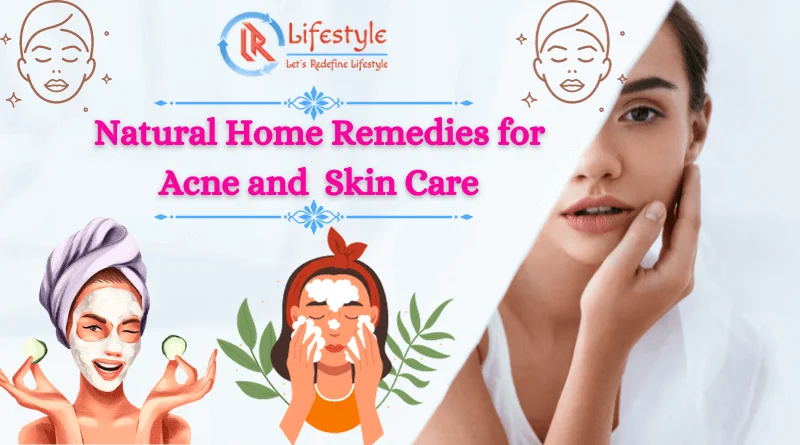Home Remedies for Acne and Skin Care: Your Comprehensive Guide
Introduction
Acne is a common skin condition that affects people of all ages, often causing distress and a desire for clear, healthy skin. While there are countless over-the-counter products and prescription treatments available, many individuals seek natural and home remedies to address acne and maintain their skin’s health. In this comprehensive guide, we’ll explore a variety of home remedies and skin care tips to help you manage acne and achieve radiant, blemish-free skin.
Understanding Acne
Before delving into remedies, it’s crucial to understand the factors that contribute to acne. Acne typically results from:
- Excess Sebum Production: Overactive sebaceous glands can produce too much oil, leading to clogged pores.
- Clogged Pores: When dead skin cells and excess oil block hair follicles, it can create an environment for acne-causing bacteria to thrive.
- Bacterial Infection: Propionibacterium acnes (P. acnes) is a bacterium commonly found on the skin’s surface that can lead to inflammation and acne.
- Hormonal Changes: Hormonal fluctuations, often seen during puberty, menstruation, and pregnancy, can trigger or worsen acne.
Home Remedies for Acne
1. Apple Cider Vinegar (ACV)
How to Use: Mix one part apple cider vinegar with three parts water, apply to the affected areas with a cotton ball, and leave it on for 10-20 seconds before rinsing.
Why It Works: ACV has antibacterial properties that can help kill acne-causing bacteria and balance skin pH.
2. Tea Tree Oil
How to Use: Dilute tea tree oil with a carrier oil (like coconut or jojoba oil) and apply it to blemishes using a cotton swab.
Why It Works: Tea tree oil has antimicrobial properties that can reduce inflammation and fight bacteria.
3. Honey and Cinnamon Mask
How to Use: Mix two tablespoons of honey with one teaspoon of cinnamon, apply to the face, and leave it on for 10-15 minutes before rinsing.
Why It Works: Honey’s antimicrobial properties combined with cinnamon’s anti-inflammatory effects can soothe and reduce acne.
4. Aloe Vera
How to Use: Apply fresh aloe vera gel directly to acne-prone areas and leave it on for 15-20 minutes before rinsing.
Why It Works: Aloe vera has anti-inflammatory and soothing properties that can help reduce redness and irritation.
5. Green Tea
How to Use: Brew green tea, let it cool, and apply it to the face using a cotton ball or spritz it on with a spray bottle.
Why It Works: Green tea contains antioxidants that can help reduce inflammation and control sebum production.
6. Multani Mitti
How to Use: Mix Multani Mitti with water or rose water and apply it as a face mask.
Why It Works: Multani Mitti helps absorb excess oil and impurities, leaving the skin fresh and rejuvenated.
Skin Care Tips for Acne-Prone Skin
1. Gentle Cleansing
Use a mild, sulfate-free cleanser to wash your face twice daily. Avoid scrubbing vigorously, as it can worsen acne.
2. Moisturize
Use a non-comedogenic (won’t clog pores) moisturizer to keep your skin hydrated without exacerbating acne.
3. Sun Protection
Apply sunscreen with SPF 30 or higher to protect your skin from UV rays, which can worsen acne and cause hyperpigmentation.
4. Diet and Hydration
Eat a balanced diet rich in fruits, vegetables, and whole grains. Stay hydrated by drinking plenty of water to flush toxins from your body.
5. Stress Management
Practice stress-reducing techniques like yoga, meditation, or deep breathing exercises, as stress can exacerbate acne.
6. Avoid Picking or Squeezing
Resist the urge to pop pimples, as it can lead to scarring and worsen inflammation.
When to Seek Professional Help
If your acne is severe, persistent, or causing emotional distress, consult a dermatologist. They can provide personalized treatment options, such as prescription medications, chemical peels, or laser therapy, to effectively manage your condition.
Conclusion
In conclusion, managing acne and maintaining healthy skin often requires a combination of home remedies and consistent skin care practices. Be patient and persistent in your efforts, as results may take time. By understanding the causes of acne and incorporating these home remedies and skin care tips into your routine, you can work towards achieving clearer, healthier skin. Remember that what works for one person may not work for another, so it’s essential to find the right approach for your unique skin type and condition.
Also Read:
For News related to entertainment visit our entertainment website:
https://www.glamworldtalks.com/



